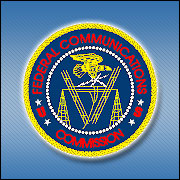
The Federal Communications Commission has reportedly ended a series of talks with major players in the Internet industry on the question of Net neutrality.
This followed allegations that Google and Verizon are privately wheeling a deal that would let the latter give preferential treatment to Web traffic from Google on its network for a fee. Google denied the reports.
But is this the end of Net neutrality as we know it? Will companies be able to dictate what information consumers access on the Web by simply paying a fee to carriers?
Further, is a free and open Internet a basic right of consumers? Or are all parties concerned engaged in a war of words, selecting those with the best emotive appeal?
The Wedding of Verizon and Google?
On Thursday, three major U.S. papers reported that Verizon and Google are hashing out a deal that will see Google paying Verizon to prioritize traffic from the Internet giant, and there are fears that other content owners may follow suit.
Both companies have denied this.
For its part, AT&T is disappointed that the Net neutrality talks convened by the FCC have broken down. AT&T believes a consensus solution can be achieved, said spokesperson Jim Cicconi. “We believe a consensus solution is vital if we are to ensure continued investment and job creation in the Internet space,” he added.
AT&T declined further comment on this issue.
Verizon, meanwhile, claimed that the talks made good progress toward consensus on a number of points. It also pledged to continue working with the FCC, Congress and all interested parties to ensure that the Internet remains open and that investment remains robust.
All Sound and Fury?
Regarding the allegations that Google and Verizon were negotiating together, “I don’t believe the reports,” Carl Howe, director of anywhere consumer research at the Yankee Group, told TechNewsWorld.
Further, Howe contended the FCC’s meeting with Verizon, AT&T, Skype and other major Internet players on Thursday preceding the Commission’s announcement had nothing to do with Net neutrality.
“My guess is that Thursday’s meeting was to talk about making more money,” he said. “If I were to bet, I’d say they were talking about an advertising deal, because we know Verizon’s been tied up with Microsoft for a long time, and I don’t think that deal got Verizon anything like the numbers it had hoped for.”
What’s a Neutral Net?
Perhaps the problem is the definition of Net neutrality, which apparently remains amorphous.
The definition of the term “Net neutrality” isn’t consistent among all interested parties, Rob Enderle, principal analyst at the Enderle Group, told TechNewsWorld.
One concept of Net neutrality holds that all lawful Web-based content, applications and services should be treated equally by all service providers. The FCC favors this interpretation.
Those who adhere to that definition would certainly view Google’s alleged dealings with Verizon as a violation of that principle.
However, “I don’t view that type of agreement as a violation of Net neutrality,” the Yankee Group’s Howe remarked. “It’s a quality of service issue. If Google wants to do voice, it wants to make sure voice tracking works,” he explained.
Violations of Net neutrality would occur when a carrier demands money from content providers or other customers in order to make the service they are paying for work properly, Howe remarked.
“It’s along the lines of, ‘If you can’t pay me more, your traffic gets slowed’,” Howe explained.
“We remain as committed as we always have been to an open Internet,” Google spokesperson Mistique Cano told TechNewsWorld.
“Both Google and Verizon need to find a way around the reality of limited bandwidth,” Enderle pointed out. “When government fails to act, individuals will fill the gap, and that seldom is a good thing.”
Regulating the Net
The FCC is beating its head against a wall in trying to regulate the Internet, Enderle said.
“It hasn’t been granted the right to regulate this area, and getting a bunch of companies to cooperate if you don’t have any teeth tends to be a waste of time,” Enderle explained. “They won’t take you seriously and you can’t make them. I think the Google-Verizon effort pointed out that the FCC is wasting resources it doesn’t have to waste.”
The FCC needs to be given the authority to regulate the Internet, Enderle said. There are other problems with the question of Net neutrality, he pointed out.
“The issue is technical and Congress is anything but, so it can look really stupid during an election year,” Enderle remarked. “Also, Net neutrality is socialist in nature, making it a political landmine. The topic has little political upside but huge risks.”
Perhaps that explains why opposition to the concept of Net neutrality has been growing among Democratic members of Congress. However, Sen. John Kerry isn’t among them. He issued a statement in response to the FCC’s decision to end talks on broadband regulation by calling for bipartisan action to craft a regulatory solution.
“Senator Kerry supports Net neutrality and will continue to be an advocate for Net neutrality,” Whitney Smith, the senator’s press secretary, told TechNewsWorld.
Problems, Anyone?
Giving customers preferential access when they pay extra for it may cost the general public, Enderle warned.
“When you provide better access to a limited resource for some, then performance generally degrades for everyone else,” Enderle told TechNewsWorld. “However, this wouldn’t limit access; it would limit performance for those content providers who don’t pay extra.”
The FCC’s lack of authority gives carriers and content owners such as Google as much freedom as they need to operate on their own terms, Enderle said. The issue raised by the alleged Google-Verizon deal is one of bandwidth, not access, he pointed out.
“If you don’t pay for access you may not get adequate bandwidth for things like streaming video or moving large data sets over the Internet,” Enderle remarked. “This isn’t about getting a resource; it’s about getting enough of it for certain high-bandwidth tasks.”





















































